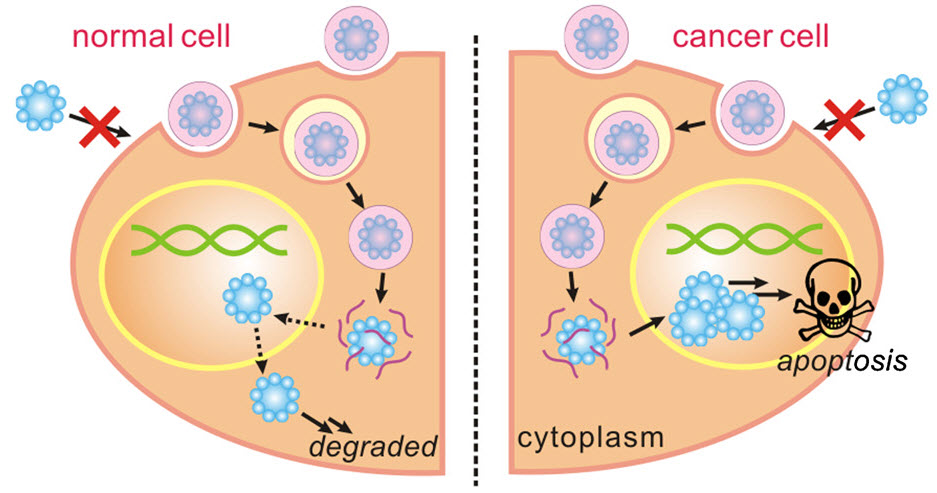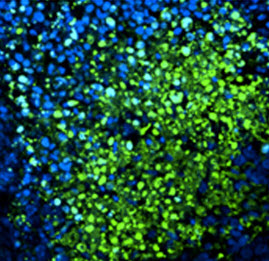Nanoscale capsule kills cancer cells without harming healthy cells
February 8, 2013

A diagram of the synthesis of degradable nanocapsules into cell nuclei to induce apoptosis, or programmed cell death, in cancer cells. The nanocapsules degrade harmlessly in normal cells. (Credit: UCLA Engineering)
A degradable nanoscale shell to carry proteins to cancer cells and stunt the growth of tumors without damaging healthy cells has been developed by a team led by researchers from the UCLA Henry Samueli School of Engineering and Applied Science.
Tiny shells (about 100 nanometers in length, roughly half the size of the smallest bacterium) are composed of a water-soluble polymer that safely delivers a protein complex to the nucleus of cancer cells to induce their death. The shells degrade harmlessly in non-cancerous cells.
The process does not present the risk of genetic mutation posed by gene therapies for cancer, or the risk to healthy cells caused by chemotherapy, which does not effectively discriminate between healthy and cancerous cells, said Yi Tang, a professor of chemical and biomolecular engineering and a member of the California NanoSystems Institute at UCLA.
“This approach is potentially a new way to treat cancer,” said Tang. “It is a difficult problem to deliver the protein if we don’t use this vehicle. This is a unique way to treat cancer cells and leave healthy cells untouched.”

Treatment of apoptin nanocapsules resulted in tumor growth retardation from apoptosis (green) (credit: UCLA Engineering)
The cell-destroying material, apoptin, is a protein complex derived from an anemia virus in birds. This protein cargo accumulates in the nucleus of cancer cells and signals to the cell to undergo apoptosis (programmed self-destruction).
The polymer shells are developed under mild physiological conditions so as not to alter the chemical structure of the proteins or cause them to clump, preserving their effectiveness on the cancer cells.
Tests done on human breast cancer cell lines in laboratory mice showed significant reduction in tumor growth.
Tang’s group continues to research ways of more precisely targeting tumors, prolonging the circulation time of the capsules, and delivering other highly sought-after proteins to cancer cells.
The research was funded by the David and Lucille Packard Foundation and a breast cancer research grant from the Congressionally Directed Medical Research Program.